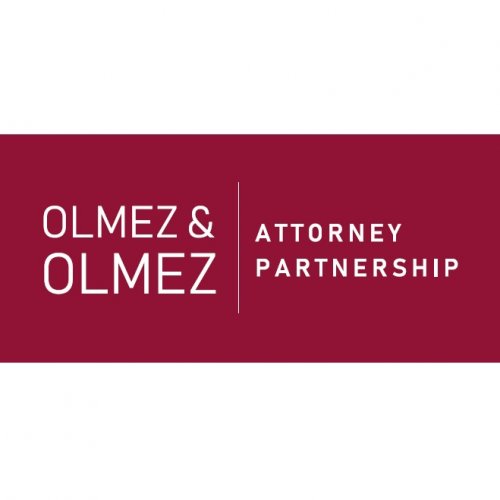Best General Litigation Lawyers in Istanbul
Share your needs with us, get contacted by law firms.
Free. Takes 2 min.
List of the best lawyers in Istanbul, Turkey
About Litigation Law in Istanbul, Turkey
Litigation law in Istanbul, Turkey, encompasses the process of taking legal action in the courts of Istanbul to resolve disputes that arise from civil or commercial interactions. Situated at the crossroads of Europe and Asia, Istanbul serves as a significant hub for legal proceedings, given its economic and cultural prominence. The litigation process in Turkey involves a series of steps, including the filing of a lawsuit, pre-trial procedures, trial, and sometimes an appeal. Turkish courts operate under a civil law system, meaning the outcome of cases often depends on legal statutes rather than precedents.
Why You May Need a Lawyer
There are several scenarios where seeking legal advice in the field of litigation is crucial:
- If you are involved in a business dispute, such as breach of contract or partnership disagreements, a litigation lawyer can help protect your interests and pursue a resolution.
- In cases of personal injury claims resulting from accidents or professional negligence, legal expertise is vital to receive fair compensation.
- Property disputes, including lease disagreements or issues related to property development, often require legal intervention to ensure fair resolution.
- If you face consumer rights issues or conflicts with governmental authorities, understanding your legal options is essential.
- In family law matters, such as divorce or custody battles, litigation can help resolve disputes through the legal system.
Local Laws Overview
In Turkey, the legal system is based on a civil law system primarily derived from continental European civil traditions. The key legal codes include the Turkish Civil Code, Commercial Code, and Code of Civil Procedure. Some of the unique aspects of litigation in Istanbul include:
- Strict adherence to procedural rules outlined by the Turkish Code of Civil Procedure, governing how lawsuits should be conducted.
- Importance of expert witness testimony, often appointed by the court to provide specialized knowledge applicable to the case.
- Use of mediation as a preliminary step or during proceedings to resolve disputes amicably before resorting to trial.
- Bankruptcy and enforcement laws play a significant role in commercial disputes, which are often addressed in the Istanbul commercial courts.
Frequently Asked Questions
What is the first step in initiating legal proceedings in Istanbul?
The first step is consulting a qualified lawyer to assess the merits of your case, followed by drafting and submitting a lawsuit petition to the relevant court.
How long does it typically take for a court case to be resolved?
The duration of litigation can vary widely based on the complexity of the case, the court’s schedule, and whether the decision is appealed, but it often takes several months to years.
Are court hearings open to the public?
Yes, most court hearings in Turkey are open to the public, with certain exceptions for sensitive cases that may require confidentiality.
Can a foreign national file a lawsuit in Istanbul?
Yes, foreign nationals can file lawsuits in Istanbul, although they may need to comply with certain procedural requirements and provide official translations of documents.
What are mediation services, and are they mandatory?
Mediation services provide a platform for parties to resolve disputes with the help of a neutral third party. In some cases, mediation is a mandatory precursor to litigation.
How are legal fees usually structured for litigation cases?
Legal fees can be calculated based on an hourly rate, fixed fee, or as a percentage of the claim's value, often agreed upon prior to the commencement of legal proceedings.
What is the role of an expert witness in litigation?
An expert witness in Turkey provides technical or specialized knowledge to the court, often crucial to the facts of the case and appointed by the court.
Is it possible to settle out of court?
Yes, parties can reach a settlement before or during trial proceedings, with legal guidance to ensure the agreement is enforceable and legally binding.
What should I bring to my initial consultation with a lawyer?
Bring all relevant documents, such as contracts, correspondence, identification, and any evidence related to your case to help your lawyer assess the situation effectively.
Can I appeal the court’s decision if I’m unsatisfied?
Yes, Turkey's legal system allows parties to appeal court decisions, with specific time limits and procedural requirements for filing an appeal.
Additional Resources
- The Turkish Bar Association provides resources and information about member lawyers available for consultation in various areas of law.
- Istanbul Chamber of Commerce offers mediation services and information regarding commercial litigation in the region.
- Legal aid services are available for those who may qualify, providing access to necessary legal representation.
- Government offices such as the Ministry of Justice offer information on legal processes, rights, and obligations under Turkish law.
Next Steps
If you find yourself in need of litigation assistance in Istanbul, consider the following steps:
- Begin by identifying and reaching out to a competent lawyer specializing in your type of legal issue. Personal recommendations, law firm websites, and bar association directories can be useful resources.
- Prepare all necessary documents and evidence that might support your case, and be ready to discuss them during your initial consultation.
- Think about your desired outcomes and any possible settlement offers you might consider, as having clear goals will help guide your legal strategy.
- Engage actively in the process, understanding your rights and obligations, keeping open communication with your lawyer, and being mindful of court schedules and deadlines.
Lawzana helps you find the best lawyers and law firms in Istanbul through a curated and pre-screened list of qualified legal professionals. Our platform offers rankings and detailed profiles of attorneys and law firms, allowing you to compare based on practice areas, including General Litigation, experience, and client feedback.
Each profile includes a description of the firm's areas of practice, client reviews, team members and partners, year of establishment, spoken languages, office locations, contact information, social media presence, and any published articles or resources. Most firms on our platform speak English and are experienced in both local and international legal matters.
Get a quote from top-rated law firms in Istanbul, Turkey — quickly, securely, and without unnecessary hassle.
Disclaimer:
The information provided on this page is for general informational purposes only and does not constitute legal advice. While we strive to ensure the accuracy and relevance of the content, legal information may change over time, and interpretations of the law can vary. You should always consult with a qualified legal professional for advice specific to your situation.
We disclaim all liability for actions taken or not taken based on the content of this page. If you believe any information is incorrect or outdated, please contact us, and we will review and update it where appropriate.

















